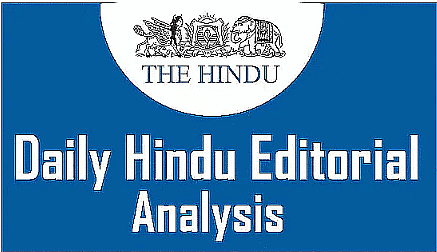The Hindu Editorial Analysis- 27th June 2024 | Current Affairs & Hindu Analysis: Daily, Weekly & Monthly - UPSC PDF Download

Lip Service
Why in News?
The Emergency, imposed on June 25, 1975 by the then Prime Minister Indira Gandhi, and which lasted 21 months till March 21, 1977, remains a blot on the history of democratic India. The rule by decree, the suspension of civil liberties and free speech, the arbitrariness of government actions, and the indiscriminate arrests of dissenters and Opposition figures using draconian preventive detention laws, among other measures, continue to haunt Indians who experienced it in all its vicious forms.
Emergency of 1975 in India: An Overview
Proclamation and Duration
- On June 25, 1975, the President of India, Fakhruddin Ali Ahmed, proclaimed a state of Emergency.
- This period of National Emergency lasted for 21 months, from 1975 to 1977.
- During this time, India's democratic processes were significantly undermined, leading to profound social and political repercussions.
Reasons Behind the Proclamation
Accusations Against Prime Minister Indira Gandhi
- Indira Gandhi, the Prime Minister at the time, faced accusations of exhibiting totalitarian tendencies.
- These tendencies became more pronounced when she was legally challenged by Raj Narayan.
The Legal Battle and Court Verdict
- Raj Narayan filed a case against Indira Gandhi, alleging electoral malpractices.
- The Allahabad High Court found these allegations to be true, ruling that Indira Gandhi was guilty of election misconduct.
- The court invalidated her victory in the Rae Bareilly constituency and barred her from holding any elected office for six years.
Indira Gandhi's Response
- To maintain her position as Prime Minister and suppress dissent, Indira Gandhi advised the President to declare a National Emergency.
- This move effectively silenced opposition voices and allowed her to retain control over the country.
Contributing Political and Economic Conditions
- Recent War with Pakistan
- The aftermath of the recent war with Pakistan created a tense and volatile environment.
- Oil Crisis of 1973
- The global oil crisis had severe economic repercussions, exacerbating the country's economic challenges.
- Drought and Food Security
- A severe drought had compromised the food security of millions, adding to the public's distress.
- Frequent Protests
- Ongoing and frequent protests were disrupting economic productivity and creating further instability.
Impact on India
- The imposition of Emergency had a significant negative impact on India's social and political landscape, as democratic norms were largely ignored during this period.
Implications of the Emergency (1975-1977)
Negative Impacts
Suppression of Opposition
- Individuals opposing Indira Gandhi's autocratic tendencies faced severe police brutality and torture.
Suspension of Civil Liberties
- Civil liberties and Fundamental Rights guaranteed by the Constitution were suspended during the Emergency.
- Basic human rights and constitutional provisions were disregarded.
Censorship
- Press and media faced extensive censorship and pre-censorship, restricting the flow of information.
Arrests of Political Opponents
- Thousands of political opponents were arrested on false charges and imprisoned. Notable figures included JB Kripalani, Vijayaraje Scindia, Arun Jaitley, Atal Bihari Vajpayee, Chaudhary Charan Singh, and Mulayam Singh Yadav.
Forced Sterilization Campaigns
- Sanjay Gandhi, Indira Gandhi's son, led forced sterilization campaigns across the nation.
Constitutional Changes
- The 42nd Amendment of 1976, often referred to as the "mini Constitution," brought extensive changes to the Constitution.
Positive Outcomes
Economic Growth
- The period saw significant economic growth and increased productivity in various sectors.
- Industrial and agricultural production improved, and there was an overall increase in work efficiency.
Low Inflation
- Inflation rates were low, making goods more affordable for the masses.
Improved Trade Balance
- Imports began to decline gradually while exports saw a rise.
Environmental Safeguards
- The 42nd Constitutional Amendment introduced provisions to safeguard the environment and forest reserves of India.
Explicit Declaration of State Principles
- The amendment made the implicit socialist and secular nature of the Indian state explicit by adding these terms to the Preamble of India.
Protest and Final Outcome
- Despite the scale of repression, there was resistance from various newspapers.
- Inspired by Gandhi, leaders started filling prisons in protest.
- In 1977, Indira Gandhi called for fresh Lok Sabha elections, releasing all political prisoners and officially ending the Emergency.
- The Congress party suffered a humiliating defeat, losing to the Janata Party.
|
39 videos|4283 docs|904 tests
|
|
39 videos|4283 docs|904 tests
|

|
Explore Courses for UPSC exam
|

|

















